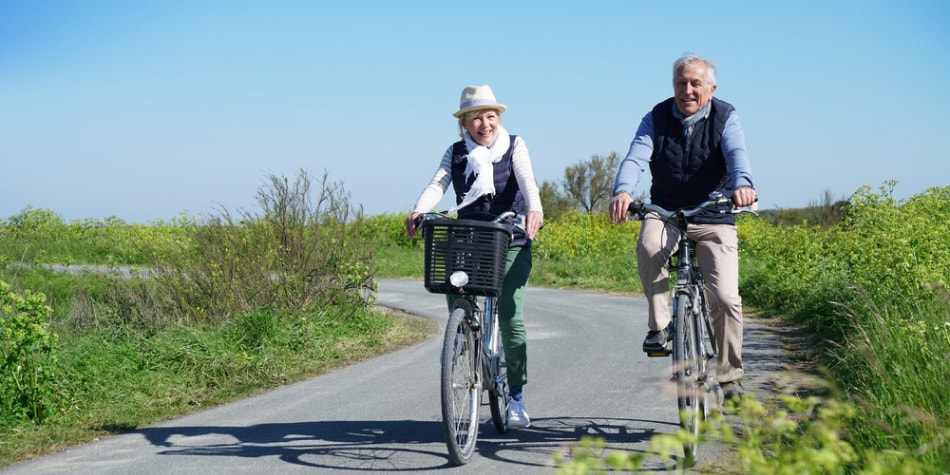
Working out and eating a well-balanced diet can help you maintain good body and brain health and combat age-related changes.
As we age, our bodies naturally begin to change, and it may become more difficult to do things as we once did. Some of these changes can be obvious, while others may be more subtle. Fortunately, some age-related changes can be combated through diet and exercise. Here’s what to keep in mind.
Musculoskeletal changes
According to a study published in the journal Therapeutic Advances in Endocrinology and Metabolism, age-related changes to the musculoskeletal system, which includes bones, muscles, tendons, ligaments and soft tissues, can be accelerated by periods of immobility associated with ill health or lifestyle changes. It’s not necessarily getting older that causes changes to the musculoskeletal system, but other factors that often occur with aging.
One way to combat changes to the musculoskeletal system, such as loss of muscle, bone mass or restricted joint movement, is to stretch and do weight training. Stretching can help maintain joint flexibility, while weight or strength training can help increase muscle mass and overall strength. All you need is yourself to do planks, push-ups and certain other body-weight exercises, so even if you don’t have access to a gym, it’s easy to get started without any special equipment. If you do have access to a gym or weights at home, you can also incorporate light dumbbells or ankle weights into your routine and add heavier weights over time.
Cognitive changes
The ability to think clearly, learn and remember can change as you get older due to age-related changes to the brain, according to the National Institute on Aging (NIA). Cognitive function can also change due to injuries to the brain, such as stroke or mood disorders like depression. You can support your cognitive function as you get older by doing the following:
Eating healthy foods. According to the Alzheimer’s Society, there is some evidence that eating a Mediterranean-style diet can reduce the risk of getting some forms of dementia as well as the risk of developing problems with thinking and remembering.
Maintaining physical activity. According to the NIA, being physically active is associated with a lower risk of Alzheimer’s and a slower rate of cognitive decline in older adults. One theory about why physical activity can help reduce the risk of Alzheimer’s is that it prevents the formation of the damaging plaques and tangles that are associated with the disease. Remaining physically active can also improve mood and reduce depression.
Staying mentally active. Learning new skills can help improve your ability to think, while playing certain games, such as card and board games, can help you stay mentally sharp. According to a 2019 study published in the Journals of Gerontology, people who played analog or non-digital games scored better on memory and thinking tests in their 70s than those who didn’t. People who increased their game playing in their 70s were also more likely to maintain certain thinking skills as they aged.
Digestive changes
According to the AARP, some of the body’s biggest age-related changes happen in the digestive system. For example, the amount of stomach acid you produce decreases and the gastrointestinal tract begins to slow down.
Digestive changes that might occur as you age include becoming lactose intolerant (even if you had no difficulties with lactose before) and experiencing changes in bowel movements. Lactose intolerance can occur when the lactase enzyme, which metabolizes milk, begins to decrease. You might need to alter your diet to reduce the amount of dairy you eat to avoid any issues.
Changes in the frequency of your bowel movements don’t necessarily mean you’re experiencing constipation, as normal bowel movements can be anywhere from once every three days to three times per day. However, if you need help with going to the bathroom, most laxatives can be used safely as directed once or twice per day. Increasing your fiber intake can also help, but be sure to do this slowly so you don’t feel gassy and bloated.
Combating physical changes during the aging process doesn’t have to be difficult. Continuing to work out (or starting to work out) and eating a well-balanced diet can help you maintain good body and brain health as you age. Just remember to consult your doctor about any specific concerns and before you start a new workout regimen or diet.
$webqFacilityNumber
Need a Physician?